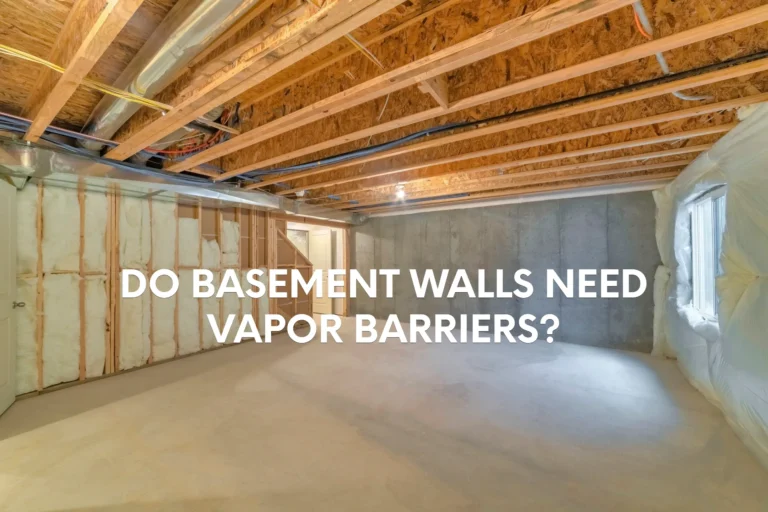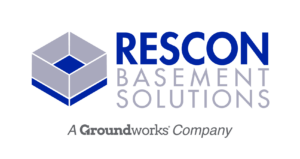Vapor Barrier Basement 101
Feb 05, 2024
Vapor Barrier Basement 101
Welcome to our blog, where we dive deep into all things home improvement! Today, we’re going to tackle a topic that may not be on everyone’s radar but is crucial for maintaining a dry and healthy basement: vapor barriers. If you’ve ever wondered what exactly a vapor barrier is or if it’s worth the investment, you’ve come to the right place.
Basements are notorious for being damp and prone to moisture issues. From musty odors to mold growth, excess moisture can wreak havoc on your living space and even pose potential health risks. That’s why understanding the role of a vapor barrier in basement moisture control is essential for any homeowner.
In this article, we’ll explore the pros and cons of using a vapor barrier in your basement, discuss alternative solutions for managing moisture, and provide tips on proper installation techniques. So grab your hard hat (metaphorically speaking) because we’re about to embark on an enlightening journey into the world of vapor barriers!
What is a vapor barrier?
What is a vapor barrier? This is a common question that arises when it comes to basement moisture control. A vapor barrier, also known as a moisture barrier or damp-proofing membrane, is a material used to prevent the passage of water vapor through walls, floors, and ceilings.
In simple terms, it acts as a shield between the interior and exterior environments of your basement. It helps to keep out excess moisture that can lead to problems such as mold growth and structural damage. Vapor barriers are typically made from materials like plastic sheeting or foil-faced insulation.
The purpose of a vapor barrier is to reduce the amount of moisture that enters your basement from the ground or surrounding areas. It creates an effective barrier against humidity and condensation by preventing water molecules from passing through porous surfaces.
While vapor barriers are commonly used in basements, there has been some debate about their effectiveness. Some argue that they can trap moisture inside if not installed properly or in certain climates where high levels of humidity exist.
However, many experts believe that when installed correctly with proper ventilation systems in place, vapor barriers can greatly reduce the risk of moisture-related issues in basements.
Whether or not you choose to use a vapor barrier in your basement will depend on various factors such as climate conditions and the overall condition of your home’s foundation.
Next time we’ll explore the pros and cons associated with using a vapor barrier in basements! Stay tuned for more information on this topic!
The debate surrounding vapor barriers in basements
The use of vapor barriers in basements has long been a topic of debate among homeowners, contractors, and experts. Some argue that vapor barriers are essential for preventing moisture damage and mold growth, while others believe they can actually trap moisture and cause more harm than good.
Those in favor of using vapor barriers argue that they create a barrier between the basement walls or floor and the surrounding soil or air, preventing moisture from seeping into the space. This can help to protect against issues such as water damage, mold growth, and musty odors. Additionally, a properly installed vapor barrier can also help to improve energy efficiency by reducing heat loss.
On the other hand, critics of vapor barriers contend that they can actually trap moisture inside the basement rather than keeping it out. They suggest that in humid climates or areas with high water tables, a vapor barrier may prevent natural drying processes from occurring and lead to increased humidity levels. This could potentially result in condensation forming on surfaces within the basement, creating an ideal environment for mold growth.
Whether or not to use a vapor barrier in your basement will depend on various factors such as climate conditions, site-specific characteristics like soil type and drainage patterns, as well as personal preferences. It is important to weigh both sides of the argument before making a decision.
Pros and cons of using a vapor barrier in the basement
When it comes to basement moisture control, one common solution that homeowners often consider is using a vapor barrier. A vapor barrier is a plastic or foil sheet that is installed on the interior walls and floors of a basement to prevent moisture from seeping through.
Like any other home improvement method, using a vapor barrier in the basement has its pros and cons. Let’s take a look at both sides of the coin.
Pros:
1. Moisture protection: One of the biggest advantages of using a vapor barrier is that it helps protect your basement against moisture infiltration. This can help prevent issues like mold growth, water damage, and musty odors.
2. Energy efficiency: By preventing moisture from entering your basement, a vapor barrier can also contribute to improved energy efficiency in your home. It helps reduce heat loss and keeps your HVAC system running more efficiently.
3. Easy installation: Installing a vapor barrier is relatively straightforward and doesn’t require extensive construction work or technical skills.
Cons:
1. Trapped moisture: While a properly installed vapor barrier can keep out external moisture, it may also trap existing moisture within the walls if not done correctly. This trapped moisture could eventually lead to mold growth or structural damage.
2. Cost considerations: Depending on the size of your basement and the materials used, installing a high-quality vapor barrier can be quite expensive.
3. Potential for condensation: In some cases, especially in humid climates or poorly ventilated basements, there may be an increased risk of condensation forming behind the vapor barrier.
As with any decision regarding your home’s maintenance, it’s important to weigh both sides before deciding whether to use a vapor barrier in your basement or explore alternative options for controlling moisture levels effectively. Contact Rescon Basement Solutions and let us help you decide what’s best for you and your home!

